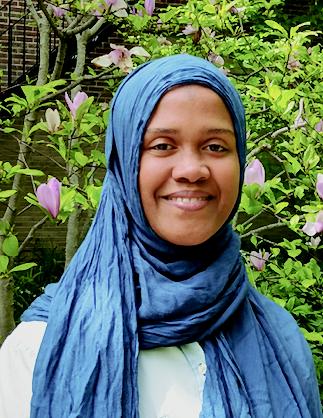Blowing the Horn: From the Creativity of Survival to the Creativity of Freedom
For people whose identities are marginalized in mainstream culture, some of our most memorable experiences from childhood are painful and confusing: the times when we felt different or devalued, but we couldn’t express our feelings and therefore couldn’t get help to process them. They had nowhere to go, no outlet, so they were buried deep inside, only to reemerge later when we had a framework for understanding what we’d been through.

For people whose identities are marginalized in mainstream culture, some of our most memorable experiences from childhood are painful and confusing: the times when we felt different or devalued, but we couldn’t express our feelings and therefore couldn’t get help to process them. They had nowhere to go, no outlet, so they were buried deep inside, only to reemerge later when we had a framework for understanding what we’d been through. If “trauma” is a distressing experience that changes your view of yourself and the world around you, then most people from marginalized backgrounds experience trauma as children.
 |
| James Baldwin. Photo: Allan Warren. |
How does this affect our writing for young people? When I described the premise of my novel and my relationship to the material to another researcher at the Schomburg Center for Research in Black Culture in the summer of 2019, she encouraged me to read the archives of James Baldwin, specifically correspondence about a novel that was taking him years to complete. In the letters, I found a statement from Baldwin’s editor that read something like, “now that he’s got the obligatory autobiographical novel out of the way, he can move on,” as though writing one’s own story frees up the writer to enter the realm of imagination.
Baldwin is one of my heroes, and his process of writing from curiosity mirrors my own. If our writing begins with making sense of our own pasts, how many more stories about trauma must be written, over how many generations?
My hope for the next one hundred years of children’s literature is my hope for the world: that marginalization ceases to be a defining experience for children of certain backgrounds. That instead of needing to begin by processing trauma, writers of all backgrounds can dive right into imaginary worlds and explore what could be. For children of all identities to see their existence as a marvelous opportunity, not a constant struggle. For the books they read to show them a world that expands to welcome them.
Cultures defined by resilience and survival against all odds are filled with creativity and beauty. Still, for creators like me whose very existence is a “beautiful struggle,” I want to see what we will create when we don’t have to spend so much time and energy fighting oppression. Today we dream of freedom. What will our dreams look like when we are free?
 From the May/June 2024 special issue of The Horn Book Magazine: Our Centennial. For more Horn Book centennial coverage, click here. Find more in the "Blowing the Horn" series here.
From the May/June 2024 special issue of The Horn Book Magazine: Our Centennial. For more Horn Book centennial coverage, click here. Find more in the "Blowing the Horn" series here.
 Single copies of this special issue are available for $15.00 including postage and may be ordered from:
Single copies of this special issue are available for $15.00 including postage and may be ordered from:
Horn Book Magazine Customer Service
magazinesupport@mediasourceinc.com
Full subscription information is here.

RELATED
ALREADY A SUBSCRIBER? LOG IN
We are currently offering this content for free. Sign up now to activate your personal profile, where you can save articles for future viewing.







Add Comment :-
Be the first reader to comment.
Comment Policy:
Comment should not be empty !!!